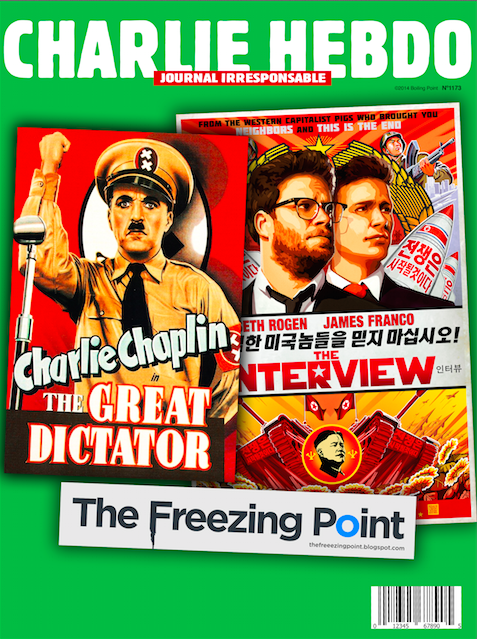OPINION: From Charlie Chaplin to Charlie Hebdo, satire is crucial force for change
January 14, 2015
With the awful shooting that happened in France, many people have been asking why the satirical magazine Charlie Hebdo drew a caricature of Muhammad in the first place. If extremist members of Islam threaten people who draw him, then why the hell would you draw him?
This is the classic “they were asking for it” phenomenon, where people think going through with something that is commonly seen as a “bad idea” means that you deserve the consequences.
I’m here to say that that’s simply not the case. What Charlie Hebdo was doing before the shooting was far more important and courageous than people give them credit for: satire.
The Oxford dictionary defines satire as “the use of humor, irony, exaggeration, or ridicule to expose and criticize people’s stupidity or vices, particularly in the context of contemporary politics and other topical issues.” Pretty much, this means that satirical media sources like Charlie Hebdo, The Colbert Report, The Onion and yes, even The Freezing Point, share the same goals. They may all have different viewpoints and the former three mentioned may accomplish it much better than the latter, but they all attempt to use humor to criticize authority and politics, and in some cases, to bring about change.
Charlie Chaplin’s movie The Great Dictator is an early version of this, a farce on Hitler and Nazi Germany while America was still at peace with them. The movie helped the American public see the anti-Semitism and fascist ideas coming from Germany at the time by using humor to diffuse the dark subject matter and show the public the truth. It’s generally considered one of the most important films of all time.
A modern and albeit less sophisticated version of that film came out just a few weeks ago, The Interview. While The Interview will certainly not be up for an Oscar any time soon, this writer personally believes the political satire about North Korean concentration camps and mass starvation was done quite well, even if it was layered under a bunch of butt jokes.
Releasing that film and filling theatres with flag-waving Americans taught a more important lesson than most realized: that we can be free to have satire in this country without letting threats or religious zealotry get in our way. We’ve sadly seen religious differences cause much worse than the shooting at Charlie Hebdo. From the Holocaust, to 9/11, to the crusades in the Book of Joshua (if you choose to believe that), religious zealotry and the belief that God, Allah, Zeus or even Vishnu want you to kill in the name of religion has only led to bloodshed. So why shouldn’t satire touch a subject like that? Why can’t Charlie Hebdo make fun of a religious figure like Muhammad, as they have since done in response to the shooting?
The answer is this: They can. They should. No matter the possible repercussions, they must. Satire is the backbone of change. When even satire can’t criticize something, that means no one can. And do we really want to live in a world where that’s the case?
Humor and satire diffuse the tension surrounding an issue, make the issue more comprehensible, and thus make engaging in the controversy more palatable for a larger audience. And that’s why Charlie Hebdo is publishing drawings of the prophet Muhammed, even as its staff mourns 12 who were killed for doing just that.
Satire is a first step toward an evolving society, one that can bring civilization from stoning people for picking up sticks on Shabbat, all the way to a 21st-century civilization where, say, women can read from the Torah and be considered equal members of our community. And that’s the kind of progress that only humor can advance.
Josh Goldner is editor-in-chief of The Freezing Point, Shalhevet’s satirical news blog.
This story won two 2015 Gold Circle awards from the Columbia Scholastic Press Association, one for Op-Ed Page Design (Gabe Silverstein) and the other for Opinion Writing, Off Campus issues. In addition, it won a National Opinion Writing Award in the 2015 Quill & Scroll International Writing and Photo Contest, judged by the American Society of News Editors.













